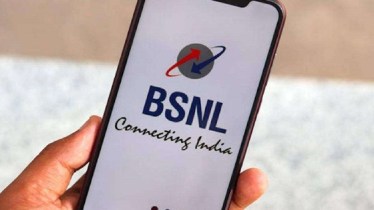State-owned Bharat Sanchar Nigam (BSNL) has reported a profit of Rs 262 crore in the October-December quarter, its first since 2007, according to a government release.
In the year ago period, the company’s loss stood at Rs 1,569 crore and in the July-September quarter, BSNL’s loss was at Rs 1,243 crore.
The reason behind the company becoming profitable can be attributed to an increase in revenue from mobility, fibre-to-the-home, and leased lines, which increased 15%, 18%, and 14% year-on-year, respectively. Additionally, BSNL has successfully reduced its finance cost and overall expenditure, leading to a positive bottom line impact of over Rs 1,800 crore, compared to last year, according to the government.
Key factors which helped BSNL to show profits are multiple revival packages, spectrum allocation at no cash payment to the company, and capital infusion by the government.
“BSNL has earned a record profit of Rs 262 crore in the October-December 2024 quarter for the first time since 2007. Under the visionary leadership of the respected Prime Minister Shri @narendramodi ji, BSNL is committed to providing the best services to the customers in its new avatar,” Minister of communications Jyotiraditya Scindia said in a post on X.
BSNL said it has been focusing on innovation, aggressive network expansion, cost optimisation, and customer-centric service improvements, which helped the company to clock profits during the quarter.
“We are pleased with our financial performance this quarter, which reflects our focus on innovation, customer satisfaction, and aggressive network expansion. With these efforts, we expect revenue growth to improve further, exceeding 20% by the end of the financial year,” said A Robert J Ravi, CMD of BSNL.
In FY24, the company’s revenue from operations was at Rs 19,344 crore. The company did not share the revenue for the October-December quarter. Revenue from operations for the six months ended September grew 10.4% y-o-y to Rs 9,235 crore.
BSNL is targeting a 25% market share of the mobile subscriber base by the end of next year. The firm is deploying 4G and 5G networks using indigenous technology. So far, the company has deployed over 65,000 4G sites, which can be upgraded to 5G.
